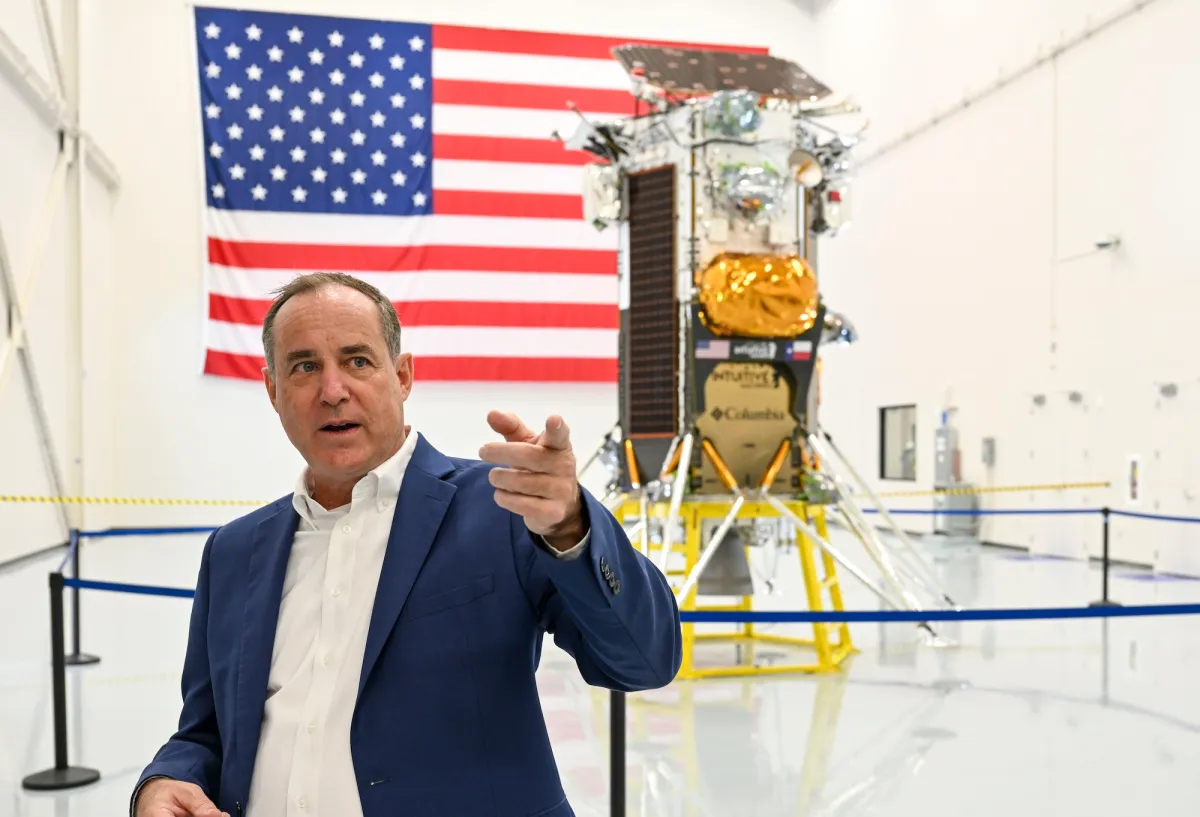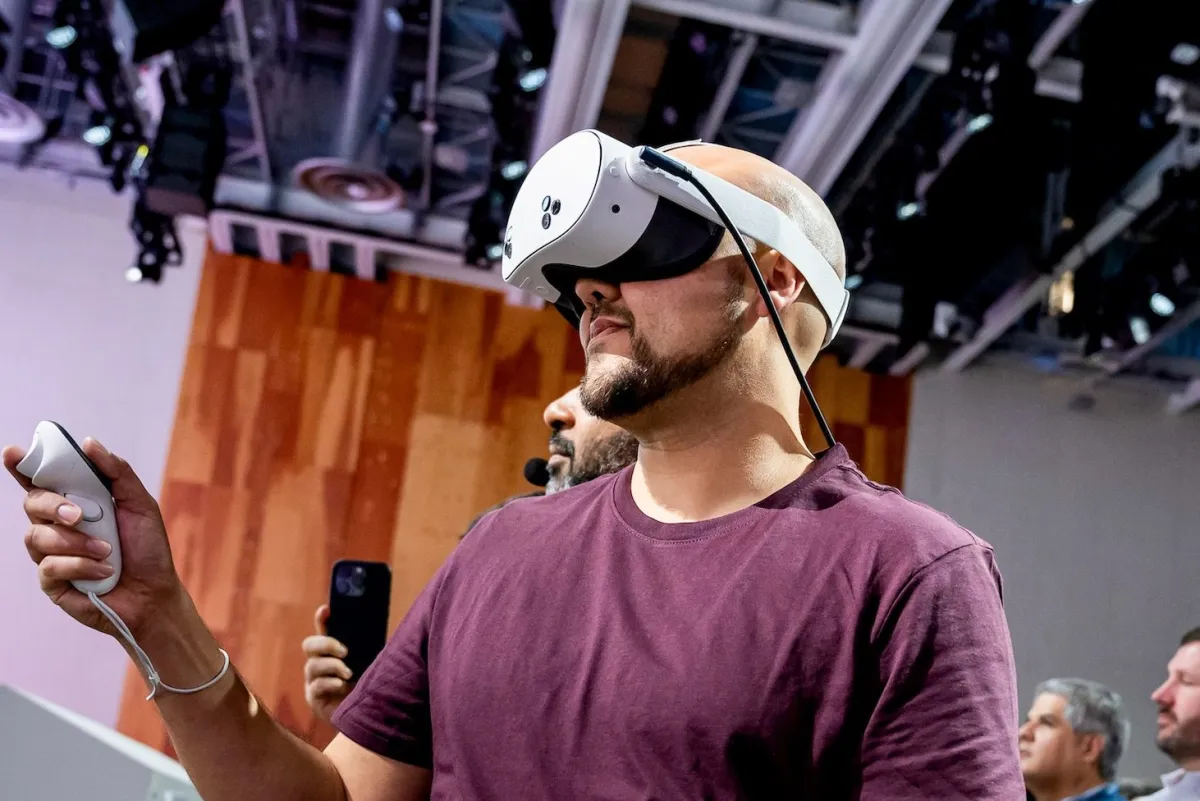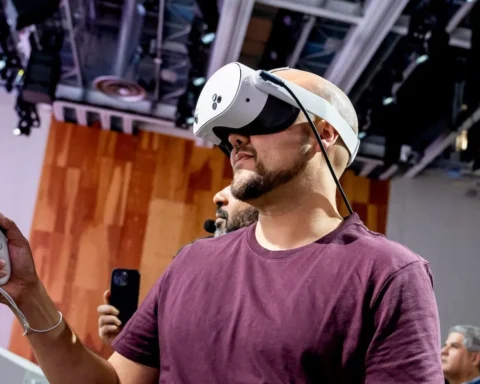Steve Altemus is optimistic. As CEO of Intuitive Machines, which made history with the first-ever successful moon landing performed by a private company, he has good reason. But that was just the opening act of his company’s plans to build “a full stack: all the pieces you need to create missions to the moon, on the moon, and around the moon.”
Altemus shared that Intuitive Machines is uniquely positioned to support lunar missions and eventually a lunar economy, not just as a contractor for governmental organizations but as a full-fledged commercial space services company.
Intuitive Machines was recently awarded a multi-billion-dollar cislunar communications services contract, making it the sole provider of high-bandwidth communications for Artemis missions and others traveling to the Moon.
“This is massive,” Altemus said. “Now we have the third leg of the stool to hold up the company.”
“We had the CLPS [Commercial Lunar Payload Services] contract, which was the delivery service; then we have the LTV [Lunar Terrain Vehicle] contract, which is infrastructure as a service. The middle piece is really data transfer and analytics, with this commercial lunar data for Artemis — if you think about it, we now have the platform for a lunar economy,” he continued. “And we’re able to do it as a commercial supplier for those services.”
The alternative has historically been high-cost, one-off systems like the Lunar Reconnaissance Orbiter. While these systems are technically advanced, they come with nine-figure price tags. Increasingly, government and commercial clients are opting for more economical solutions — a trend exemplified by reusable rocket technology and the efficient transport systems developed in recent years.
Interestingly, Altemus credited a misunderstanding with the company’s development of a key technology stack.
“When NASA first gave us the CLPS award, we misunderstood the requirements. We thought they said, ‘fly to the moon and give us data back, without using the Deep Space Network.’ Turns out they were allowed to use the DSN, but we worked under the assumption that we couldn’t,” Altemus explained.
As a result, Intuitive Machines developed its own robust network to communicate from Earth to the Moon and back. This unplanned effort gave the company a competitive edge, eventually securing the major cislunar communications contract.
Many might assume that existing satellite constellations like Starlink would be natural providers of lunar communication services, but Altemus highlighted the differences between lunar and terrestrial systems.
“When you think about lunar communications, it’s a fundamentally different physics question,” he explained. “The environments, distances, and situations are unique. We’ve operated in transit to the Moon, in orbit, and on the surface using commercial ground stations and a dozen large radio astronomy dishes across the globe. Building a lunar lander is a far more complex task than creating a satellite, so we already had the talent in place.”
While the communications contract is a significant milestone, another exciting development for Intuitive Machines is the Lunar Terrain Vehicle (LTV), a modern Moon Buggy. The company is collaborating with AVL, Boeing, Michelin, and Northrop Grumman to compete for a contract that includes not just building the vehicle but also operating and supporting it for a decade.
“This is the first piece of commercial infrastructure on the lunar surface that has to be operated autonomously. You can be enamored with the buggy, but you still have to deliver the service,” Altemus said. “As a company, we’re the only ones in the competition that have a lander to deliver the LTV, the LTV itself, and the communications and navigation systems to operate it autonomously on the Moon.”
All competitors are building Earth-based mockups of the vehicle to evaluate how astronauts interact with it.
“It’s fascinating to hear from astronauts who’ve actually walked on the Moon about how the original buggy operated and what improvements we can make,” Altemus said.
Intuitive Machines is embracing a modern procurement model based on fixed-price contracts with long-term services, breaking away from traditional cost-plus awards.
“The key to U.S. competitiveness is speed and agility. Companies like ours thrive in this environment, while traditional aerospace companies often struggle to adapt,” Altemus said.
With 400 employees and growing, Intuitive Machines has found its home in Houston, near Johnson Space Center.
“When I left NASA, I knew Houston was the perfect place to build this company. The talent pool is incredible, and the culture here is unmatched. People can feel what it’s like to win,” he concluded.









